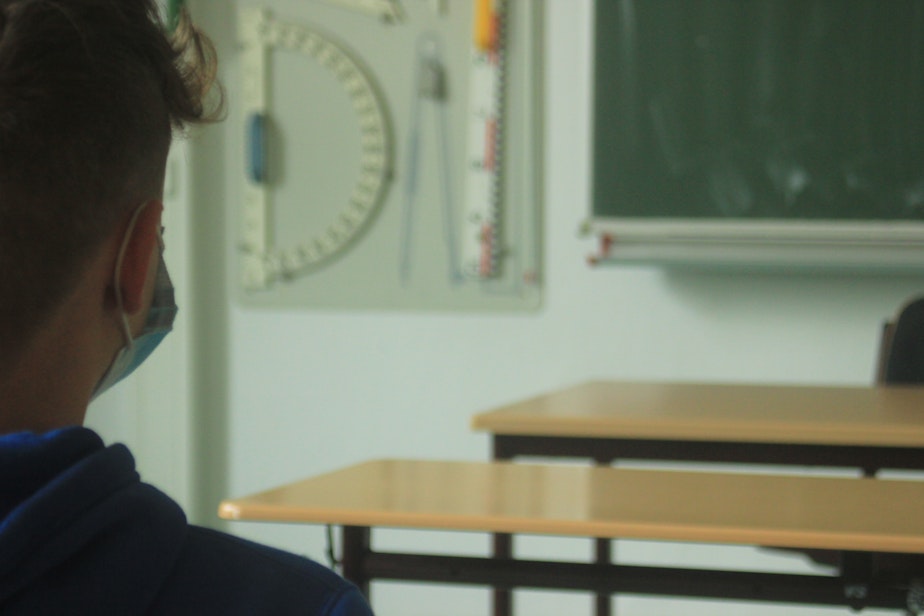Amid a shortage, one NW school district reimagines the role of substitute teachers

There’s a growing challenge in public education — a lack of substitute teachers. A recent nationwide survey showed nearly every school district had a sub shortage during the pandemic. And as families with kids in Seattle Public Schools found out this past year, if you don't have enough subs when there's a wave of sickness, your school could close for a few days.
Neal Morton is a reporter with The Hechinger Report, a non-profit newsroom that focuses on education. He's written about the challenges of the substitute teacher shortage, and how one local district is trying to solve it. He talked to KUOW’s Kim Malcolm about what he learned.
This interview has been edited for clarity.
Kim Malcolm: Just how bad is the shortage of substitute teachers right now?
Neal Morton: Right now, it's a little bit more manageable for school districts, but certainly during the most recent surge of Covid it was pretty bad. There were school districts that were asking for parent volunteers to step in. Teachers were giving up their planning periods. I spoke to some central administrators who had to dust off their teaching certificates to go back into the classroom. There were many schools that just simply shuttered for a few days because they didn't have enough adults to keep the classrooms open.
Why is it worse now as opposed to two to three years ago?
It's a mixture of problems. One, many people are quarantining, or are sick themselves. We also know some people who might have substituted in the past, including older retired teachers, don't want to come back and potentially expose themselves to Covid. We also know that the economy is a great market for workers right now. They can do pretty much anything else and make much more money, so it's become quite a bit more competitive for school districts.
You highlight ways districts are trying to grapple with this issue, including the Everett School District. You write about one sub named Nathan Roberts. How does his situation illustrate what Everett is trying to do here?
Nathan was an interesting individual. He was studying to become a teacher and was looking for jobs. He had the misfortune of looking in the middle of the school year when many school districts don't put up full-time teaching positions, so he knew his best bet was working as a substitute. He noticed an interesting job post in the Everett School District, which was hiring full-time “floater substitutes.”
At about two dozen schools in Everett, they have a full-time substitute who fills in as needed. Not only do they have a stable job and want to come back day after day, but they get a better feel for the culture of the school. They get to know students' names, they get to know their colleagues, and become a better part of the school community, rather than shifting from building to building, and maybe deciding they want to do something else instead.
If the lack of substitute teachers was an issue before the pandemic, and during the pandemic it became a crisis, long term, what is the solution?
Aside from just making the substitute experience better for these individuals, who are really providing a great resource to keep our schools open for the kids who need it, there's consideration of what substitutes can be expected to earn. We've seen school districts across Washington and the country increase the daily rate that substitutes take home. They're providing more money for those critical days, Mondays and Fridays when it's more common for teachers to call out for a variety of reasons.
Then there are school districts like Everett that are thinking of ways to make these jobs more stable and attractive; health and insurance benefits; a guaranteed Monday through Friday position. It's knowing that substitutes are not, as one of the sources said in my story, a Plan B or an afterthought, but a critical part of keeping schools running.
Listen to the interview by clicking the play button above.





